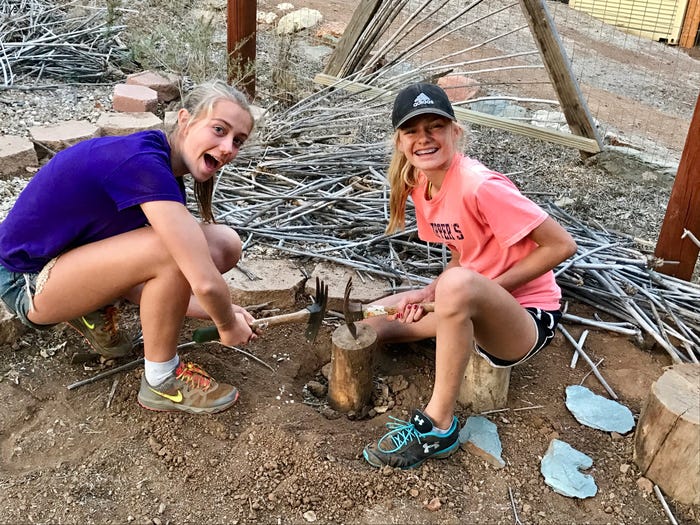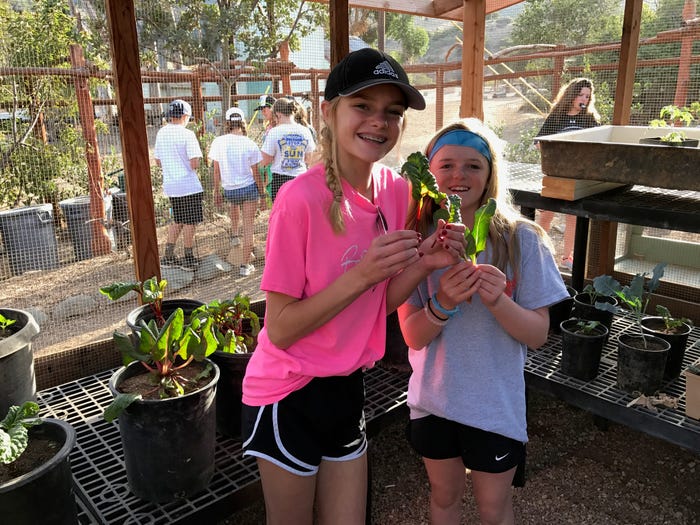Colorado Middle School Aims to Save its Composting Program
Kinard’s school district, Poudre School District, has been forced to cancel the school’s composting program due to an increase in utility costs from the program’s partner GSI Waste.

Kinard Core Knowledge Middle School in Fort Collins, Colo., takes waste reduction seriously. So much so, in fact, that it has an impressive composting program and a year-long class elective dedicated to environmental awareness, sustainable living practices and service-learning. But although the class and composting program have made great strides, Kinard’s school district, Poudre School District, has been forced to cancel the school’s composting program due to the fact that the utility cost of composting increased because the program's partner GSI Waste was losing money from transportation costs.
Kinard CARES, which stands for Community, Action, Results, Environment and Service, provides students with hands-on learning opportunities, that range from snorkeling at California’s Catalina Island to studying the ecosystem to solving math equations to balancing compost piles. These learning experiences allow students to come up with new ideas for incorporating sustainable efforts in their everyday lives.
“With Kinard CARES, we aim to provide students with an authentic and engaging learning experience that reflects the responsibilities they will face in the real world when they grow up,” says Chris Bergmann, assistant principal and Kinard CARES teacher at Kinard Core Knowledge Middle School. “The class elective isn’t just about the environment; it’s about how society and the economy impact each other and work together.”
The class elective includes an annual trip to Catalina Island, where students participate in activities like hiking, snorkeling, kayaking, navigating through a high-ropes course and working through different stations to learn the full cycle of food production.

"Each year, the Kinard Care students and staff go on a five-day trip to Catalina Island in California, where we get to experience how there is no waste in nature and how everything in our world is connected," says Mackenzie Brown, an eighth grade student at the school. "By having that real-life, hands-on experience, we can come up with ideas for reducing waste both at school and at home. This year at Catalina Island, we cut up dead and fallen trees to create sheds to cover garden plants, which is part of our tradition of leaving a mark on the island to help future generations."
In addition to Kinard CARE’s annual learning adventures, students help maintain and promote the school’s composting program, which helps divert between 20,000 pounds and 30,000 pounds of food waste from landfill every year via a comprehensive four-stream waste management system located in the school’s cafeteria and a partnership with A1 Organics.
“Over the past six years, we have built up a strong infrastructure at Kinard for diverting waste from landfill,” says Bergmann. “It was our students’ idea to remove the trash bins from the cafeteria and to build the four-stream waste management system. Our program has been a learning tool for other schools in the area, and it would be really unfortunate if we had to lose the eco-friendly culture we built up in our school due to economics not working out.”
The announcement of the composting program cancellation came at the beginning of this school year and students and staff have since been working hard to find a new partner to help them save and improve their much-loved and successful composting program.

"The students at Kinard, me included, are saddened to know that our composting program won't be here anymore," says Brown. "It was exciting to be an environmental leader as an eighth grader and be able to teach my friends and adults about how we can work together to make the world a better place. The leadership part of it all is something that really impacted me, and it's something I will take with me throughout [the duration of] my life. My hope is that we can find a new partner to help bring our composting program back to the sustainable and thriving program that it used to be."
About the Author
You May Also Like




.png?width=300&auto=webp&quality=80&disable=upscale)